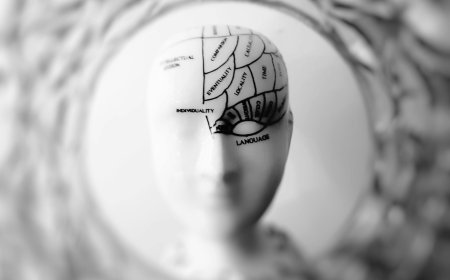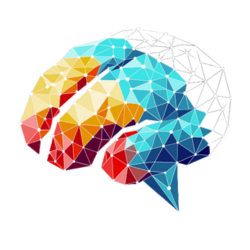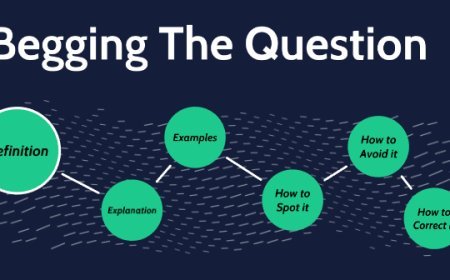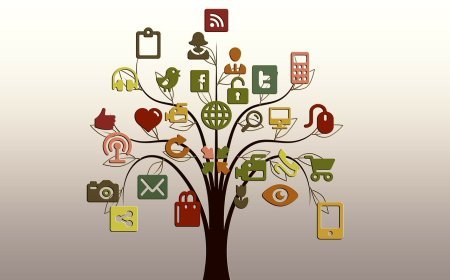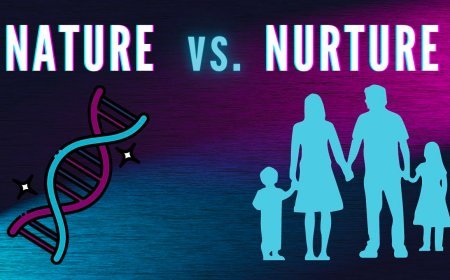An Essential Guide to Mental Health Awareness
Learn why mental health awareness is more critical than ever. This comprehensive article explores the importance of understanding mental health, how to recognize common signs of struggle, and actionable steps you can take to support yourself and others. Break the stigma and join the movement toward a healthier, more compassionate world.

In today's fast-paced world, we often talk about physical fitness and well-being, but what about our mental health? Our minds are the control centers of our lives—they govern how we think, feel, and act. Yet, for too long, conversations about mental health have been clouded by silence and stigma.
Mental health awareness is not just a passing trend; it is a fundamental pillar of a healthy society. It is the collective effort to educate ourselves and others, challenge misconceptions, and create an environment where seeking help for a mental health condition is as normal and accepted as seeing a doctor for a physical ailment.
What is Mental Health Awareness?
At its core, mental health awareness is about bringing mental well-being out of the shadows. It’s the recognition that our emotional, psyc and social health are just as important as our physical health. It involves:
-
Understanding the Basics: Learning about common mental health conditions such as anxiety, depression, and bipolar disorder.
-
Reducing Stigma: Challenging the negative stereotypes and discrimination that prevent people from seeking help.
-
Promoting Open Dialogue: Creating a safe space for people to share their experiences without fear of judgment.
-
Advocating for Access: Working to ensure that mental health services and resources are available and affordable for everyone.
The "green ribbon" is the international symbol for mental health awareness, and annual events like Mental Health Awareness Month (in May) and World Mental Health Day (on October 10th) provide dedicated platforms to amplify these crucial messages.
The True Cost of Silence
The consequences of ignoring mental health are profound and far-reaching. When conversations are silenced, people suffer alone. This can lead to:
-
Delayed Treatment: Many individuals wait years to seek professional help, allowing their conditions to worsen.
-
Social Isolation: The fear of being misunderstood or ostracized can lead to withdrawal from friends, family, and community.
-
Impaired Functioning: Untreated mental health conditions can negatively impact work, school, relationships, and overall quality of life.
-
Physical Health Problems: The mind-body connection is powerful. Chronic stress, anxiety, and depression can manifest in physical symptoms, from fatigue and pain to weakened immune systems.
The good news is that we are making progress. Thanks to the tireless efforts of advocates, organizations, and individuals sharing their stories, the conversation is shifting. More people are realizing that mental illness is a medical condition, not a personal weakness.
How You Can Be a Part of the Movement
Raising mental health awareness isn't just for experts; it's something everyone can do. Every small action contributes to a larger, more compassionate change. Here's how you can get involved:
-
Educate Yourself: Take the time to learn about mental health. Read articles, listen to podcasts, and follow reputable organizations like the National Alliance on Mental Illness (NAMI) or Mental Health America (MHA).
-
Talk Openly: Start a conversation. Share your own experiences if you feel comfortable, or simply ask a friend, "How are you really doing?" Being an active listener without judgment can be a lifeline for someone who is struggling.
-
Use Your Platform: Whether it's through social media, a blog, or a community event, use your voice to share accurate information and inspiring stories. Use hashtags like #MentalHealthMatters and #EndTheStigma to join the global conversation.
-
Practice Empathy: Understand that a person's struggle is valid, even if you don't fully comprehend it. Treat everyone with kindness and respect. Avoid using stigmatizing language like "crazy" or "unhinged."
-
Promote Self-Care: Prioritize your own well-being and encourage others to do the same. This can include simple activities like getting enough sleep, exercising, spending time in nature, or setting healthy boundaries.
-
Know the Resources: Be prepared to help. Familiarize yourself with local and national mental health hotlines, support groups, and professional services. Knowing where to direct someone in a crisis can be a life-saving action.
Mental health awareness is a continuous journey, not a destination. It is a commitment to creating a world where every person feels seen, heard, and supported. By breaking the silence and challenging the stigma, we can build stronger communities and empower individuals to seek the help they need to live full, healthy lives.
Remember, you don't have to have all the answers. Your willingness to listen and learn is often the most powerful tool you have. Let's work together to make mental health a priority for everyone, everywhere.
What's Your Reaction?
 Like
0
Like
0
 Dislike
0
Dislike
0
 Love
0
Love
0
 Funny
0
Funny
0
 Angry
0
Angry
0
 Sad
0
Sad
0
 Wow
0
Wow
0




